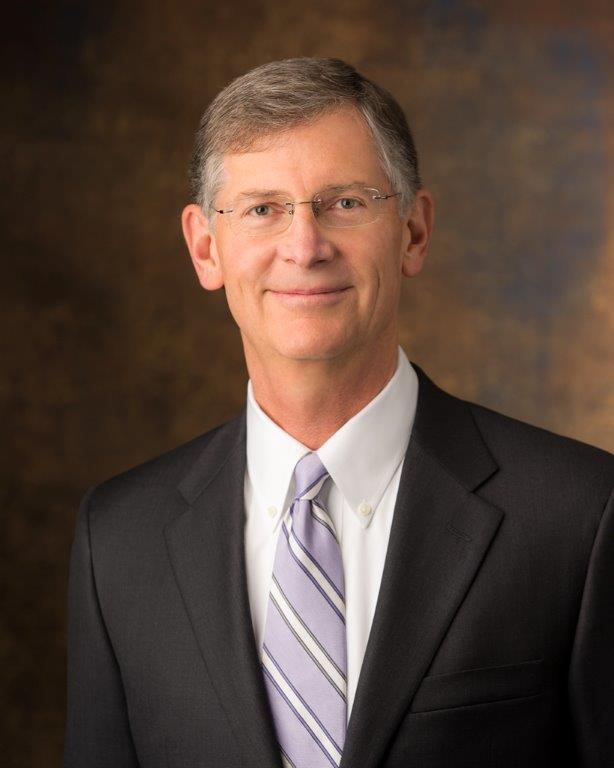For someone who never aspired to hold an executive leadership position, Charles W. Sorenson, MD, has led marked clinical and operational improvement at the helm of Salt Lake City-based Intermountain Healthcare.
Prior to becoming president and CEO in 2008, Dr. Sorenson served as executive vice president and system COO for 10 years. Throughout his tenure at Intermountain, he has been integral to the creation of numerous clinical process improvement initiatives. He helped build Intermountain Medical Group, an integrated practice employing roughly 1,300 physicians and advanced practice clinicians. He also served as the founding chair of the medical group's board from 1994 to 1998.
Dr. Sorenson also oversaw the systemwide implementation of clinical best practices aimed to improve outcomes for patients, as well as  operational best practices designed to increase efficiency and control costs. On top of his administrative duties, Dr. Sorenson continues to practice surgery — primarily urologic oncology. A graduate of CornellUniversityMedicalCollege in New York City, Dr. Sorenson is a board-certified urologic surgeon.
operational best practices designed to increase efficiency and control costs. On top of his administrative duties, Dr. Sorenson continues to practice surgery — primarily urologic oncology. A graduate of CornellUniversityMedicalCollege in New York City, Dr. Sorenson is a board-certified urologic surgeon.
He's held numerous leadership roles outside of health systems, such as chair of the Committee on Young Surgeons for the AmericanCollege of Surgeons, president of the Utah Urologic Society and Speaker of the House of Delegates of the Utah Medical Association.
Here, Dr. Sorenson took the time to answer Becker's Hospital Review's seven questions.
What's one thing that really piqued your interest in healthcare?
I can't remember a time when I didn't want to be a physician. My dad was an internist. He worked long hours, but absolutely never complained about them, and it was easy to see how much he cared about his patients. And I knew they were grateful to him. Not infrequently they'd stop by our house and drop off some fruit or vegetables from their garden or some freshly caught fish.
I was attracted to medicine because of the way it combined science, which I really loved, with the opportunity to make such an immediate and meaningful difference in the lives of people. It also appealed to me because the road to expertise in medicine was long and hard.
I never aspired to hold a healthcare leadership position. But over the years, I came to see the great opportunities we have for making healthcare better on a large scale, and recognized the critical importance of having experienced clinicians help shape the future of medicine.
What do you enjoy most about Salt Lake City?
I like the people here a lot. But actually, I've liked the people everywhere I've been. I guess what makes Utah unique is how close we are to an amazingly beautiful and diverse outdoors. From the mountains — where our family has hiked, biked and skied, to the solitude of the deserts, to the national parks of southern Utah with their canyons unlike any others in the world.
If you could eliminate one of the healthcare industry's problems overnight, which would it be?
I'd align incentives for everyone participating in healthcare — the physicians and other caregivers; our patients and people before they become patients; the insurers and other payers; and the hospitals and other facilities — so all would benefit when our population gets healthier. Our current fee-for-service system, while it does have some advantages, provides such powerful financial rewards for simply doing more things — especially expensive things — that we end up with very high cost healthcare that doesn't always deliver the outcomes people really want or need.
What do you consider your greatest talent or skill outside of the C-suite?
I still love the two or three days each month that I spend in the operating room, working with wonderful colleagues and feeling close to those at the front line of care. We track our outcomes closely and try to continuously learn and improve.
I also enjoy volunteer work with organizations outside of Intermountain, where I can have one-on-one interactions with others and try to make a difference in their lives. The personal interactions, professionally and personally, are those that make the most lasting difference for most of us.
How do you revitalize yourself?
I look forward to my morning exercise routine, usually running outside while listening to audio books. It's an important stress reliever for me, along with its long-term health benefits.
What's one piece of advice you remember most clearly?
Take your work very seriously, but don't take yourself too seriously.
What do you consider your greatest achievement at Intermountain Healthcare so far?
Intermountain has made very meaningful progress on our long-term goal of providing better outcomes for our patients and doing so at costs that are as affordable as possible for the communities we serve. We've done that by focusing on the consistent use of nationally-recognized best practices and creating a leadership structure to implement those practices and information systems that track our outcomes in terms of cost and quality. I've always believed that the most important way to engage physicians in this work is to be able to demonstrate to them that together, we're achieving better outcomes for our patients by doing things in a defined and evidence-based way. And that's turning out to be the case. It's very motivating to a clinical team when they can look at their objectively measured outcomes and see they're performing at world-class levels.


